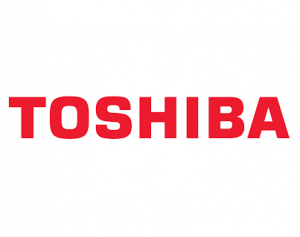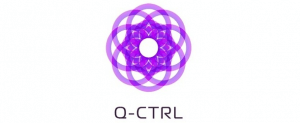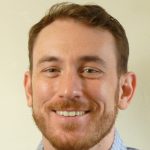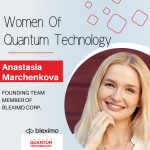Quantum News Briefs August 16: SandboxAQ collaborates with more than 30 universities, corporations & educational organizations to expand AI & quantum training; Quantum computing is Australia’s next great tech challenge & opportunity; Building a quantum-secure future with Toshiba + MORE

Quantum News Briefs August 16:
SandboxAQ collaborates with more than 30 universities, corporations & educational organizations to expand AI & quantum training
 SandboxAQ announced on August 15 it has formed relationships with more than 30 major universities and other educational organizations and has hit key milestones in co-training masters and PhD students with universities in AI, quantum, cyber and other key technologies. Quantum News Briefs summarizes the announcement.
SandboxAQ announced on August 15 it has formed relationships with more than 30 major universities and other educational organizations and has hit key milestones in co-training masters and PhD students with universities in AI, quantum, cyber and other key technologies. Quantum News Briefs summarizes the announcement.
“We realized that the increasing industry demand for advanced technologies would result in a severe shortfall of highly skilled AI and quantum tech talent. To address this, SandboxAQ forged partnerships with some of the world’s top universities to create a steady pipeline of talent and prepare graduates for cutting-edge jobs throughout the quantum industry,” said Jack Hidary, CEO of SandboxAQ. “In addition to working with universities, we are providing training to corporate partners to upskill their workforces in AI and quantum technologies.”
SandboxAQ’s university relationships include:
- Residency Program: We have drawn students from more than 45 universities including Imperial College London, Cambridge University, University of Edinburgh, Swiss Federal Institute of Technology Lausanne (EPFL), Caltech, Harvard University, Stanford University, Princeton University, Duke University, and other leading institutions.
- Curriculum Development at four higher-ed organizations including New York University (NYU) and University of Mondragon
- Grants to The City University of New York (CUNY) Graduate Center
- Fellowships to faculty and students: University of California Merced, University of Mondragon and three others
- Talks/Seminars at The City University of New York (CUNY), New York University, Czech Technical University and many more.
Click here to read the announcement in-entirety.
Quantum computing is Australia’s next great tech challenge & opportunity
 Quantum computing offers a massive $6B opportunity for Australia in the coming decades, but policies need to be made now to ensure its ethical use in the future according to Matthew Sainsbury in August 15 TechRepublic summarized below by Quantum News Briefs.
Quantum computing offers a massive $6B opportunity for Australia in the coming decades, but policies need to be made now to ensure its ethical use in the future according to Matthew Sainsbury in August 15 TechRepublic summarized below by Quantum News Briefs.
One of the big opportunities for Australia in this space will be its close relationship with the United States. Because of the sheer value of quantum computing research and technology across both military and civilian IP, nations tend to be more circumspect about sharing information in comparison to conventional technology.
The downside to this is that it means the U.S. isn’t able to draw on the same global pool of talent that it’s used to. A shortage of talent isn’t such a major issue in regular computing fields because global talent tends to pool and openly share information. However, it is with quantum computing, and it means that Australia — as a close ally with an already developed quantum industry — has a real opportunity to piggyback off of American investment and interest.
Australia already holds a 3.6% share of the global venture capital market for quantum technology. The national contributions to this space are already significant.
The success and capabilities of Australian researchers led the Australian government to release its first National Quantum Strategy earlier this year. This strategy seeks to place Australia firmly in the leadership ranks of the global quantum industry by 2030, by “encouraging research, applications and commercialisation.”
According to the National Quantum Strategy, the goal is for quantum computing to add $6.1 billion to Australia’s GDP by 2045. This will create 8,700 jobs by 2030, before steadily rising to 19,400 by 2045. These jobs will require the highest levels of technical skill and will return some of the greatest economic benefits as Australia continues to transition to a high-skill, knowledge-based economy.
Sainsbury closes, “The first steps shown in the National Quantum Strategy are an encouraging sign, but as with so much in Australian politics, the long-term success of that strategy will largely depend on how bipartisan the subject is.” Click here to read TechTarget’s complete article.
Building a quantum-secure future with Toshiba
 Toshiba’s Quantum Key Distribution (QKD) is an example of a quantum-secure method of data transmission that distributes ultra-secure encryption keys, making networks resilient against quantum threats. Toshiba’s QKD technology has been developed over two decades and can be deployed over existing fiber networks, making it a mature and world-leading solution.
Toshiba’s Quantum Key Distribution (QKD) is an example of a quantum-secure method of data transmission that distributes ultra-secure encryption keys, making networks resilient against quantum threats. Toshiba’s QKD technology has been developed over two decades and can be deployed over existing fiber networks, making it a mature and world-leading solution.
Toshiba is a Platinum Sponsor at IQT NYC 2023
In February 2022, JPMorgan Chase, Toshiba, and Ciena collaborated to demonstrate the viability of the first Quantum Key Distribution (QKD) network, ensuring security for mission-critical blockchain applications. In March 2022, Toshiba Group and KT joined forces for Quantum Key Distribution pilot projects in South Korea. In April 2022, EY became the first commercial customer for the Quantum-Secured Metro Network (QSMN), the World’s first commercial trial for QKD network built using Toshiba QKD hardware and key management software across BT’s fibre network. And recently in July 2023, HSBC became the first bank to join the UK’s pioneering commercial quantum secure metro network.
In Southeast Asia, Toshiba launched a Quantum Networks EXperience Centre (QNEX) located in Singapore and operated by its partner SpeQtral Pte. Ltd. (SpeQtral) to demonstrate quantum key distribution (QKD) technology and its real-world applications in securing critical infrastructure and sensitive data. A joint partnership between SpeQtral and SPTel recently submitted proposal to the Infocomm Media Development Authority (IMDA) to build National Quantum-Safe Network Plus (NQSN+) in Singapore.
By adopting quantum-secure methods, financial institutions can protect sensitive data, secure customer trust, and prepare for the quantum era. Toshiba is committed to developing solutions that protect the security of people and organizations from emerging threats. Click here to read the original August 15 MultiVu article in-entirety.
Q-CTRL becomes 1st independent quantum software vendor to achieve ISO 27001 certification
 Q-CTRL, a global leader in developing useful quantum technologies through quantum control infrastructure software, today announced that it has achieved ISO/IEC 27001:2022 certification, making Q-CTRL the first independent software vendor (ISV) in the quantum technology sector to obtain this internationally recognized standard. Quantum News Briefs summarizes.
Q-CTRL, a global leader in developing useful quantum technologies through quantum control infrastructure software, today announced that it has achieved ISO/IEC 27001:2022 certification, making Q-CTRL the first independent software vendor (ISV) in the quantum technology sector to obtain this internationally recognized standard. Quantum News Briefs summarizes.
ISO 27001 outlines best practices for information security management system (ISMS) implementation. Conformity with this International Standard means that an organization or business has put in place a system to manage risks related to the security of data owned or handled by the company, and that this system respects all relevant best practices and principles. In many cases it is a mandatory precondition for commercial engagement with large vendors.
The policies and controls Q-CTRL enacted in obtaining ISO 27001 certification strengthen the company’s position as a trusted partner delivering software products to the quantum tech industry and quantum computing end-users.
The independent ISO certification of robust security infrastructure and practices provides assurance to current and prospective customers: Q-CTRL’s commitment to data security reaches the highest level of internationally recognized standards. Q-CTRL is now ISO-compliant company wide, specifically in countries where their offices host employees, notably the United States, Australia, and Germany.
“Achieving ISO 27001 certification is a significant milestone for Q-CTRL. It formalizes the emphasis on professional product engineering, delivery, and security that sets QCTRL’s products apart in the sector. As we work with some of the largest tech enterprises in the world, it’s crucial for us to ensure our security practices are at global standard,” said Matthew Rogers, Head of Operations of Q-CTRL. Click here to read the announcement in-entirety.
Sandra K. Helsel, Ph.D. has been researching and reporting on frontier technologies since 1990. She has her Ph.D. from the University of Arizona.



















